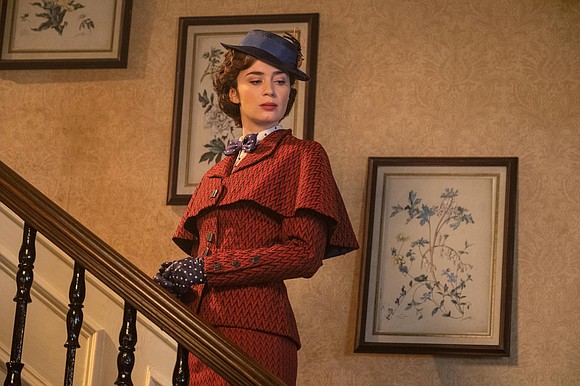'Mary Poppins' returns, as studios raid their vaults
CNN/Stylemagazine.com Newswire | 12/18/2018, 4:54 p.m.
By Brian Lowry, CNN
(CNN) -- If the original "Mary Poppins" was released today, plans would already be underway for a sequel, perhaps a trilogy. But the movie that came out in 1964 was left alone, until now, freezing Julie Andrews' portrayal of the magical nanny in amber for more than a half-century.
"Mary Poppins Returns" ends that when the long-deferred sequel premieres December 19, reflecting the current reality for any hit property, old or new. Simply put, nothing with that sort of loyal following will be allowed to sit dormant anymore, and there's a naive "Get off my lawn!" quality to complaints from those who fervently wish it weren't so.
So Disney's animated classics? Let's try live-action versions, like the upcoming "The Lion King," whose trailer lit up the Internet. Classic TV shows? There's always room for more -- either with the original cast, a la "Will & Grace," or a new one that might bring a fresh twist to the action, say, in terms of gender or race, like "One Day at a Time."
A beloved character has reached the end of his or her story? No problem. There's always room to go back and meet them when they were young.
Of course, the imperative to milk "intellectual property" for all it's worth comes with risks, foremost among them braving the thickets of nostalgia and high expectations that surround new chapters or rebooted versions of familiar names.
While "Mary Poppins" is a somewhat unusual case -- magical nannies don't age -- it nicely encapsulates the balancing act that current studio calculations require. And it comes at a singular moment for the company behind it, Disney, which is aggressively raiding its vaults and seeking to breathe new life into signature titles -- a practice that has been largely rewarded but has proven something less than foolproof.
To its credit, Disney and its Lucasfilm unit acknowledged that they might have been overfishing the "Star Wars" waters after their latest stand-alone effort, "Solo: A Star Wars Story," fell short of box-office forecasts. Never mind that the movie was actually pretty good, a number of contemplated launches were put on a slowdown pattern.
That was just a blip, however, in a "Star Wars" galaxy that's teeming with life, including new movie franchises and programming intended to drive subscriptions to Disney's planned streaming service.
On the flip side, Warner Bros. and director Bradley Cooper found surprising life in another version of "A Star is Born," roughly 80 years after the first graced the screen. HBO, meanwhile, began actively working on a "Game of Thrones" prequel to soften the blow of losing its most popular series, determined to avoid any significant lapse in Westeros-set drama.
Inevitably, a few conspicuous failures yield questions about whether it's time to hit the brakes on remake/reboot/revival mania, contemplating where the limits are on audience appetites.
Yet the truth is that these venerable properties are seen -- with considerable justification -- as the solution to a marketing problem. In a world crawling with options, consumers don't have to be educated about "Mary Poppins," "Dumbo" or "The Lion King," which means studios don't have to work as hard to sell them.
Everyone seems to have their own personal "Nope, that's going too far" threshold. Those reactions occasionally surprise the Hollywood hierarchy, such as the "You ruined my childhood!" backlash -- small, but absurdly vocal -- that greeted an all-female "Ghostbusters," a fun movie in its original guise, but not exactly on a par with "Citizen Kane" or "Casablanca."
Acting as if it's sacrilegious to think of iconic movies and TV becoming fodder for spinoffs and expansions is understandable, but it ignores the pressure to stand out amid modern saturation of content and media. As long as studios keep struggling with how to break through that clutter, expect many more "Returns," happy or otherwise




